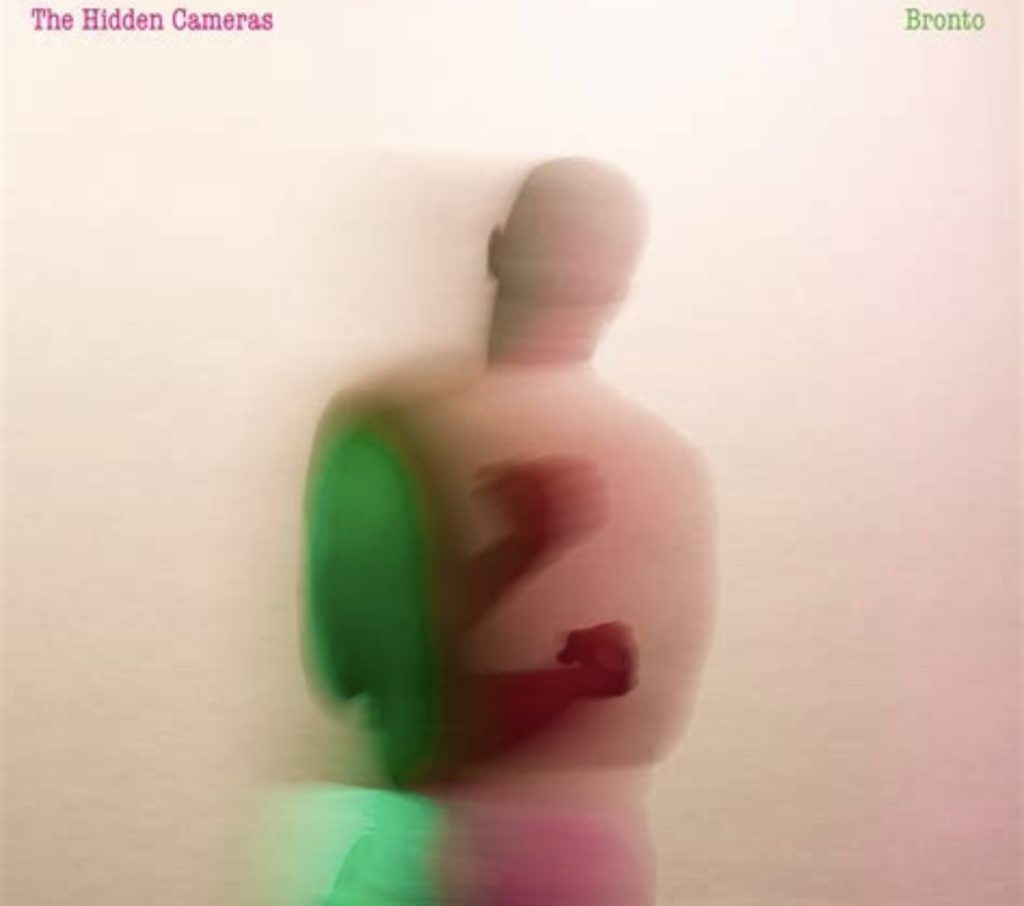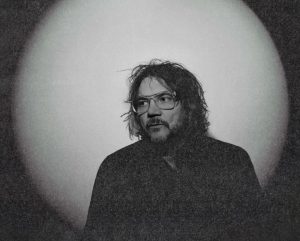GENRE: Rock
LABEL: EvilEvil
REVIEWED: 17th September, 2025
Joel Gibb, the creative force behind The Hidden Cameras, has once again reinvented his long-running project with BRONTO. Over the past 25 years, Gibb has consistently infused his music with a queer perspective, challenging traditional spaces like churches and rodeos. From their early days in the 2000s, The Hidden Cameras stood out as a collective spectacle, mixing trained musicians, experimental performers, and uninhibited dancers, offering chaotic but captivating shows that rivaled other Canadian collectives of the time. Despite the group’s communal image, the project has always been anchored in Gibb’s vision, evolving with each release.
Since relocating to Berlin in 2006, Gibb has used The Hidden Cameras as a vehicle for reinvention, each album departing sharply from the last. Past records have spanned gothic dub tones (Age, 2014) to playful country explorations (Our Home on Native Land, 2016). Now, after a nine-year hiatus, BRONTO delivers the boldest transformation yet, pulling The Hidden Cameras fully into the world of club culture and electronic dance music.
Where earlier works aligned with indie-pop traditions reminiscent of Belle and Sebastian or The Magnetic Fields, BRONTO positions itself firmly within queer electronic lineage, echoing influences like Arthur Russell, Pet Shop Boys, and Hercules & Love Affair. The album treats the dancefloor as both sanctuary and confessional, allowing Gibb to express raw vulnerability more directly than ever before.
The record begins with urgency. The opener, How Do You Love?, layers aching pleas over a steady four-on-the-floor beat, heightened by Owen Pallett’s string arrangements. Tracks like Undertow channel emotional fragility through synth-driven melancholy, while others, including Quantify and State of, lean into deep house textures, stripping lyrics down to hypnotic repetitions that heighten desire. The pulsing Brontosaurus Law, introduced by an animalistic growl, encapsulates the album’s primal core—sensual, urgent, and unrestrained.
Produced by Nicolas Sierig of Munich duo Joasihno, the album embraces dance music’s immersive qualities. Between energetic club anthems, ambient passages provide breathing space, recalling cinematic synthscapes. Songs like You Can Call reinterpret classic themes of friendship and support through an upbeat, Erasure-like lens, while the closing Don’t Tell Me That You Love Me bridges past and present, weaving an old vocal track into BRONTO’s electronic framework. Its finale where warmth gives way to cold techno captures the tension between intimacy and detachment that defines the record.
With BRONTO, Gibb documents his Berlin nightlife journey while reintroducing himself as both a storyteller and innovator. The Hidden Cameras remain rooted in collective joy, yet the album proves that Gibb continues to chart his own path, unafraid of reinvention.





